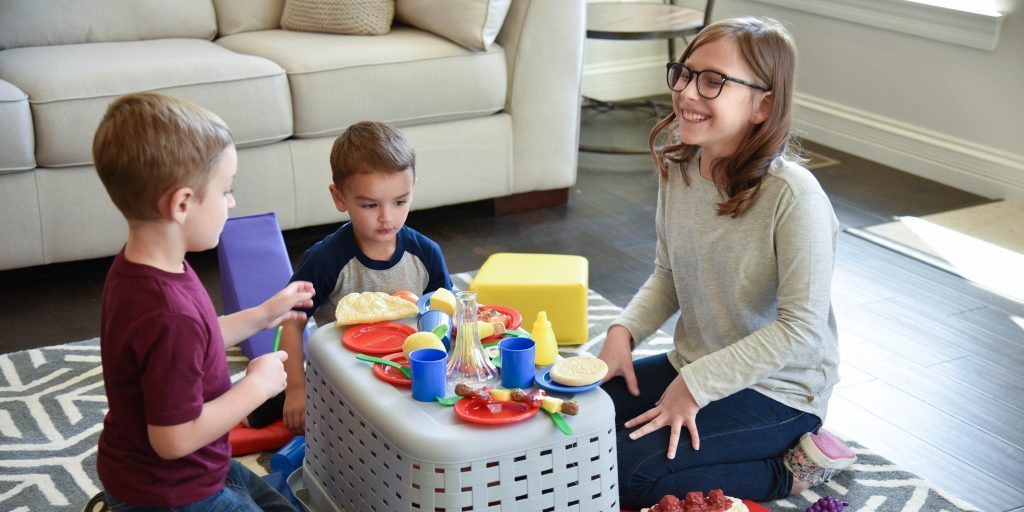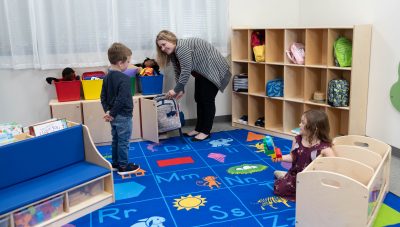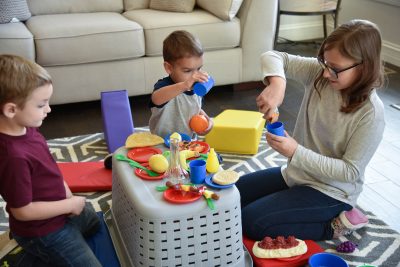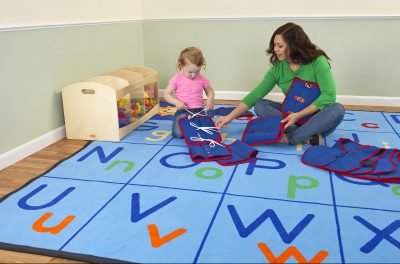
Higher EQ: The Formula for Better Learning
Do littles have stress in their lives? It probably comes as no surprise the answer is yes. Children experience stress over small things like whether their jeans look cool, but they also worry about more important issues. Children who have anxiety over their ability to learn, whether their parents are divorcing, their homework, their grades, or any other stressful event can have a profound effect on learning.
5 Domains of Self-Regulation
Dr. Stuart Shanker, Distinguished Research Professor at York University, and founder of The MEHRIT Centre, is one of this generation’s foremost experts specializing in the science of self-regulation. His research revolves around educating educators about the pivotal role they play in helping children acquire the abilities necessary for self-regulation. He breaks this skill set down into 5 domains: biological, emotion, cognitive, social, and prosocial.
Dr. Shanker’s research makes it clear parents and teachers often could use a refresher course to hone some skill sets of their own. Distinguishing the different between misbehavior and stress-induced behavior is not always an easy task. We tend to assume a child is acting out due to a lack of self-control. Some signs of stress-overload can be:
-
negative attitude
-
emotional volatility
-
restlessness
-
sudden outbursts
-
a lack of empathy
-
aggression
-
social withdrawal
-
low frustration tolerance
-
sudden outbursts
Dr. Shanker proposes instead of immediately moving to the punishment phase when these behaviors occur, maybe we need to reframe how we assess them. Research suggests a lack of security within the family unit may be a factor connected to issues with self-regulation. When a sense of calmness and safety is lacking at home, children can experience difficulties focusing and learning at school. This lack of focus is often seen as misbehavior.
What Are Some Keys to Self-Regulation?
 Dr. Shanker says, “Self-regulation is the ability to manage the way our brain and body expend and restore the energy required to deal with the stresses (positive and negative) involved in adapting to situations, facing challenges, learning and social relations.” Scientific research is revealing interesting keys to student success. The ability to concentrate, delay gratification and emotional intelligence are incredibly important to success in life. Dr. Shanker believes these abilities are directly tied to self-regulation.
Dr. Shanker says, “Self-regulation is the ability to manage the way our brain and body expend and restore the energy required to deal with the stresses (positive and negative) involved in adapting to situations, facing challenges, learning and social relations.” Scientific research is revealing interesting keys to student success. The ability to concentrate, delay gratification and emotional intelligence are incredibly important to success in life. Dr. Shanker believes these abilities are directly tied to self-regulation.
Emotional Quotient (EQ) Vs. Intelligence Quotient (IQ)
About 2,000 years ago Plato wrote, “All learning has an emotional base.” We are all familiar with the term IQ. The term emotional intelligence (EQ) began to take shape in a seminal article published in 1990 by two researchers, Peter Salavoy and John Mayer. Dan Goleman, in his 1995 book Emotional Intelligence: Why It Can Matter More Than IQ, is responsible for transforming the term into a mainstream idea.
For decades, experts purported success in life was inherently tied to our IQ. Yet, it’s become apparent none of us need to be Einstein-smart to experience success in the workplace. Our Emotional Quotient (EQ) is much more important to success, happiness, and a general sense of well-being. EQ refers to a person’s ability to deal with others and establish healthy, successful relationships.
Napoleon Hill studied over 500 millionaires in the early 1900’s to write his famous book, “Think and Grow Rich”. His interviews and research illuminated some interesting facts about these fabulously successful individuals. Most notably, Hill studied the richest man in the world at the time, Andrew Carnegie. Carnegie’s family left Scotland when he was a child and moved to America. When he was just 12 years old, he began working with no more than a few years of formal education.
Carnegie never attended any fancy prep schools, nor was he backed by a wealthy family. How did he propel himself into business prosperity? Stories of achievements and accomplishments by proverbial underdogs might have tipped experts off that something besides IQ was responsible.
Zone of Proximal Development (ZPD)
The concept of the Zone of Proximal Development (ZPD) was developed by Soviet psychologist Lev Vygotsky. He defines ZPD as, “the distance between the actual developmental level as determined by independent problem solving and the level of potential development as determined through problem-solving under adult guidance, or in collaboration with more capable peers. (Vygotsky, 1978, p. 86)”
It’s the difference between what a learner can achieve without help versus with the guidance and support of a skilled mentor.

His theory focuses on three important components to aid the learning process.
-
More Knowledgeable Other (MKO)
Learning is so much easier when we have a more knowledgeable mentor guiding us through the process. The tutor, teacher, parent, or peer models behaviors and provides verbal instructions to help the student learn.
-
Social Interaction
The social interaction between the instructor and the student is one of the keys to learning. The learner observes the tutor in action and models the same behaviors. The cooperation and collaboration help the child learn to deal with other people as they internalize instructions and information and then use it to guide their own performance.
-
Scaffolding
Though Vygotsky never used the term “scaffolding” in his writing, the third component to his theory includes the supportive activities of an educator or more competent peer. This MKO functions as a support system for the student as he or she is led through the ZPD.

Theory of Scaffolding (TS)
The term scaffolding was introduced by Wood, Bruner, and Ross in 1976, and has become synonymous with ZPD. The More Knowledgeable Other (MKO) uses scaffolding to provide just enough assistance to ensure the child stays interested and does not get frustrated. The MKO must know when to pare back or amp up the level of assistance provided to match the needs of the learner.
Cooperative Learning for Enhanced EQ
Vygotsky suggested teachers use cooperative learning exercises where more competent peers help less competent children develop. It’s important to note, every child can benefit from these exercises no matter their level of competence. Children sharpen their Emotional Quotient (EQ) when learning to lead and to follow during cooperative learning exercises. Top students can be challenged by placing them with slightly older children who will act as their MKO during a cooperative learning exercise.
Improving EQ Benefits Educators and Kids
Children who experience stress over their ability to learn may thrive in an environment where scaffolding is used. The level of assistance can be tailored to fit the needs of each individual learner. It’s apparent every child can benefit from a higher EQ when it comes to learning and their general sense of well-being. Helping children thrive, despite experiencing stressful life events, is not the easiest part of an educator’s job. Most teachers are naturally empathetic. That being said, if brushing up our own EQ skills helps identify when a child’s misbehavior stems from stress-overload, then everyone is positively impacted.
References:
https://www.simplypsychology.org/Zone-of-Proximal-Development.html